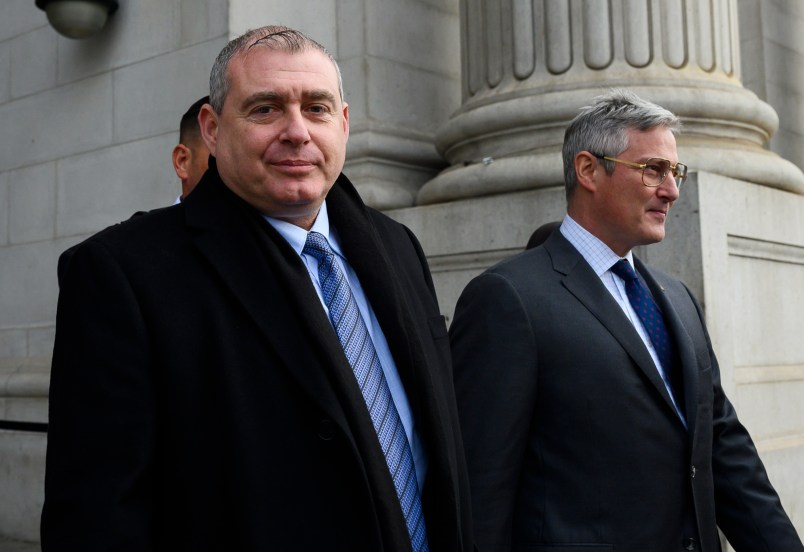Manhattan federal prosecutors expect to crack open the contents of 20 more electronic devices in the prosecution of Lev Parnas and Igor Fruman.
Assistant U.S. Attorney Nicolas Roos said at a Monday status conference that none of the defendants in the case had provided the government with passwords to access their devices, meaning that the FBI is currently trying to hack into their phones, computers, and other hard drives.
That process is ongoing as federal prosecutors mull whether – and when – to file a superseding indictment in the case. Prosecutors had said earlier that they expect to file additional charges.
U.S. District Judge Paul Oetken asked Roos whether that held true, and he replied that the government’s “position had not changed” and that there were ongoing discussions.
Roos suggested that it may be filed this spring, before initial pretrial motions are due on May 1.
“The government is aware of when it is appropriate to bring superseding indictments,” Roos said.
Parnas and Fruman were indicted with two associates in October on campaign finance charges relating to a scheme to funnel foreign cash into GOP campaign coffers.
While Fruman has stayed silent and ignored a subpoena issued by the House Intelligence Committee for information relating to his involvement in President Trump’s pressure campaign on Ukraine, Parnas used the document demand as an opportunity to very publicly distance himself from the President and his attorney Rudy Giuliani.
He used discovery received in the case to comply with the subpoena, allowing the House to release conversations between Parnas and key figures in the campaign that led to President Trump’s impeachment one week before his trial.
That development, while resonant for the political world, appears to have had minimal impact on Parnas’s criminal proceedings.
After the proceeding came to an end, Parnas and his attorney Joseph Bondy addressed reporters outside the courtroom.
“If we were to have trial with no evidence, no witnesses, and a jury of our friends, it would go a lot faster,” Bondy quipped, in a not-so-veiled reference to the impeachment proceedings. “But we’re gonna have a fair trial.”
When asked if he planned on becoming a cooperator in the government’s criminal case, Parnas demurred, and said only that “I’m here to tell the truth.”
Roos said that 197,000 pages of discovery had been produced in the case so far, and that, barring any unexpected reveals from outstanding subpoenas or the uncracked devices, prosecutors expect to finish delivering discovery to defendants by mid-March.
The sheer amount of evidence in the case led to a brief confrontation in the courtroom, with one defense attorney present – Gerald Lefcourt – demanding that the government produce an exhibit list early in the case to provide a “guide” to the hundreds of thousands of pages of documents before them.
Roos replied that each search warrant had a “100-page affidavit” attached, which, he argued, provided enough of a “guide.”
Judge Oetken declined to force the government to provide exhibits early, and set a trial date in the case for Oct. 5.






